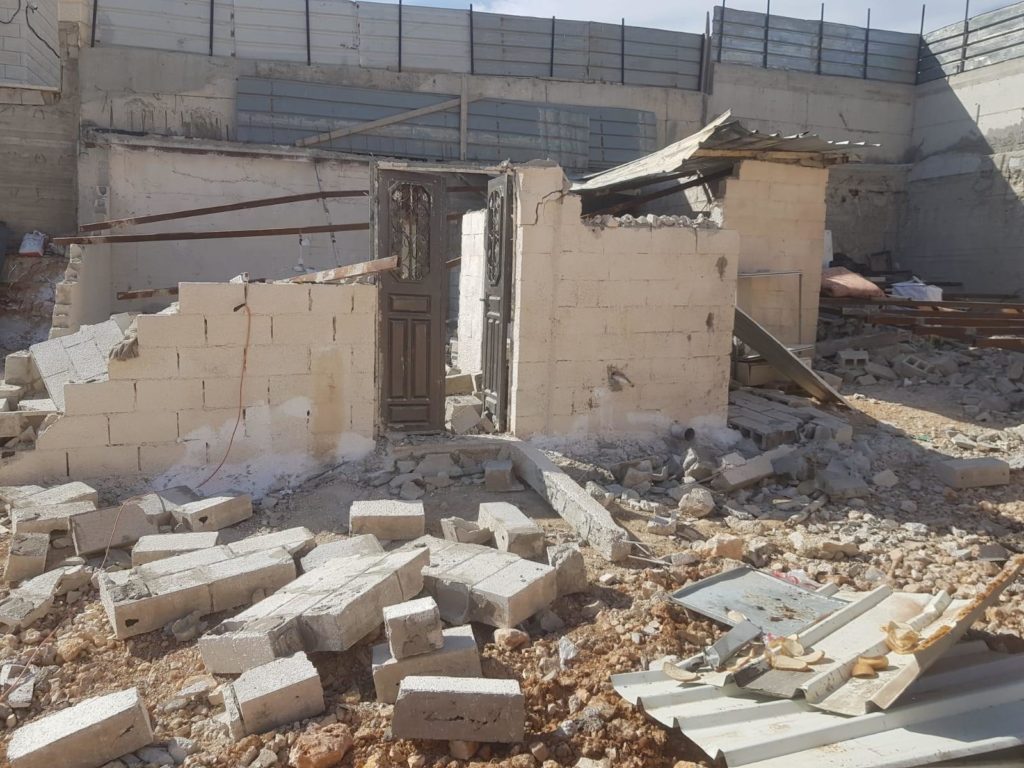
Dr. Deborah Lipstadt testified on February 8, 2022 before the Senate Foreign Relations Committee in her confirmation hearing for the role of Special Envoy to Monitor and Combat Antisemitism. In response to a question from Senator Marco Rubio, she criticized Amnesty International’s latest report on Israel, the most recent among similar evidenced-based reports by human rights organizations, including Human Rights Watch and the Israeli B’Tselem, which apply the international legal category of apartheid to describe ongoing Israeli violence against Palestinians since 1948. Amnesty’s report on apartheid in Israel is thorough and well-documented. Still, Lipstadt retorted that it is “unhistorical,” “delegitimizes” Israel, and is somehow threatening for Jewish students on US campuses. This portends a worrying and accelerating trend for an important role in the US State Department, carrying on the Trump Administration’s legacy of attacking human rights organizations and conflating legitimate criticism of Israel with antisemitism.
Dr. Lipstadt is not alone in her harsh condemnation of the Amnesty report, entitled “Israel’s Apartheid Against Palestinians: A Cruel System of Domination and a Crime Against Humanity,” which was published on February 1, 2022. It prompted immediate reactions from the Israeli government and its aligned American Jewish organizations that seek to control a narrative that persistently erases Palestinian experiences, human rights, and political aspirations. Instead of engaging with the evidence presented in the report, they accused Amnesty of antisemitism and of singling out and seeking to destroy Israel. Never mind that Amnesty is a respected human rights organization that has reported extensively on violations of international human rights and humanitarian laws around the world. Amnesty has, for instance, described Myanmar’s system of rule as apartheid in 2017, without anyone understanding this as rooted in anti-Buddhist prejudice. Amnesty is also reporting now on the severe violations of international law in Russia’s war in Ukraine since February 24, 2022, and no one has suggested that Amnesty is biased against Russians. What is singled out in the case of Israel, therefore, is criticism of Israeli policies: those defending such policies distort legitimate criticism of a state and present it, only in the case of Israel, as an attack against a people.
I have been engaged in research and teaching about the Holocaust, genocide, state violence, Jewish history, and antisemitism for over fifteen years in Israel and in the US. I have also written about the weaponization of the discourse of antisemitism, used often to silence and attack those who speak about Israeli state violence, especially Palestinians. It is a crude and cruel distortion: abusing the historical struggle of a vulnerable people, Jews, under attack by powerful states to blur the attack of a state, Israel, against a vulnerable people, Palestinians.
Knee-jerk allegations of antisemitism are meant to marginalize engagement with this reality, as presented in the report. There is indeed much to discuss: the report is the product of four years of research, based also on the work of Palestinian, Israeli, and international human rights organizations, and on a large body of scholarship. It clearly shows that, according to international human rights and humanitarian law, Israel has created and maintains a system of apartheid, consisting of segregation, discrimination, persecution, and violence against Palestinians in all the areas under its control and military occupation. The report therefore calls for dismantling the apartheid system, not the state; for those responsible for apartheid to be held accountable; and for the victims and survivors to receive justice—all according to international law. The report is a critique not of a people, but of a state, though it does not prescribe what the political future of the state should look like following the dismantling of the apartheid system.
Jews who care deeply about Israel have, in fact, described it as an apartheid state, including leading Israeli organizations and politicians, among them former prime ministers.
Those attacking the report present themselves as representatives of all Jews, but Jews hardly agree on anything, including Israel. It is, furthermore, precisely the association of Jews everywhere with Israel that puts them in danger, as it confirms in the eyes of antisemites that Jews do not really belong where they live. This unfortunate meeting point of antisemites and apologists for Israeli state violence stems from a shared segregationist view of the world, which brings us back to the report: the reality of the system of Israeli apartheid.
Israel has etched this reality into the landscape of the occupied Palestinian territories and deepened its colonization through walls, fences, other barriers, and roads intended only for Jews or only for Palestinians. The apartheid system in Israel is less visible but, as the report argues convincingly, runs deep. For instance, since 1948, Israel has built 700 new localities for Jews, but none for Palestinians. Zero. Some Palestinians seek to break through this overtly discriminatory reality. One such case happened in 2018, in the northern Israeli town of Kfar Vradim, where the sale of land for new construction was canceled after Palestinians had purchased more than half of the plots. The head of the local council, Sivan Yehieli, explained this decision with apartheid logic: he is “trusted with preserving the Zionist-Jewish-secular character of Kfar Vradim” and maintaining “demographic balances.” If Palestinians in Israel are denied movement on such racist grounds, they are also denied the right to live on their land, as in the case of Palestinian Bedouins in the Negev/Naqab in southern Israel who have faced, since the 1970s, a systemic attack by the state to displace them. To date, Israeli courts have rejected all Palestinian Bedouins’ land claim cases and denied their ancestral land rights.
Those attacking the report present themselves as representatives of all Jews, but Jews hardly agree on anything, including Israel. It is, furthermore, precisely the association of Jews everywhere with Israel that puts them in danger, as it confirms in the eyes of antisemites that Jews do not really belong where they live.
Just as the Israeli apartheid system denies Palestinians’ past, it also seeks to deny their future through an assault against Palestinian children. Palestinian scholar Nadera Shalhoub-Kevorkian has recently termed this Israeli state violence “unchilding,” which includes imprisonment, causing serious injuries, inflicting psychological trauma, and killing. The numbers are staggering: Israeli authorities have killed more than 2,000 Palestinian children since 2000 and detained around 500-700 Palestinian children every year since 2008.
On the day before Dr. Lipstadt’s hearing, February 7, 2022, the Israeli Parliament approved in first reading the proposed Citizenship Law, which denies Palestinians married to Israeli citizens permanent residency in Israel and thus bans Palestinians from the occupied Palestinian territories and Gaza from living in Israel with their Palestinian partners. Israel’s Minister of Health, Nitzan Horowitz, whose party (Meretz) opposes the proposed law, described it as “racist and discriminatory, and there is no place for it in a democratic state.” This failed to prevent the final approval of the law on March 10, 2022. Israeli Interior Minister Ayelet Shaked sees the Citizenship Law as an “important result for the security of the state and its fortification as a Jewish state,” expressing the apartheid rationale that, furthermore, casts Palestinians collectively as a security threat.
Israel’s Citizenship Law is thus another example, along with many others discussed in Amnesty’s report, that demonstrates Israel’s “purpose of establishing and maintaining domination by one racial group of persons over any other racial group of persons and systematically oppressing them,” as the crime against humanity of apartheid is defined in international law. Rather than protecting Jews, then, Lipstadt’s position helps secure a segregationist political ideology authorizing state violence. Many scholars of mass violence and Jewish history, however, teach their students to stand not with violent states, but with their victims. This also applies in the case of the Israeli apartheid system, for everyone living between the Jordan River and the Mediterranean Sea deserves equality, security, and freedom.


Thanks for this fantastic piece of rational analysis. Your voice is much-needed and very appreciated.
Excellent, truthful article! There is such a blind spot when it comes to the government of Israel’s oppression of the Palestinian people. This is not an anti-Semitic statement! The state apparatus of governance can and should be criticized for what it is but many people who do so are accused of anti-Semitism. Brilliant article!
Thank you for this clear and excellently-written article.
What implications does Dr. Deborah Lipstadt’s criticism of Amnesty International’s report on Israel have on discussions about Israeli state violence?